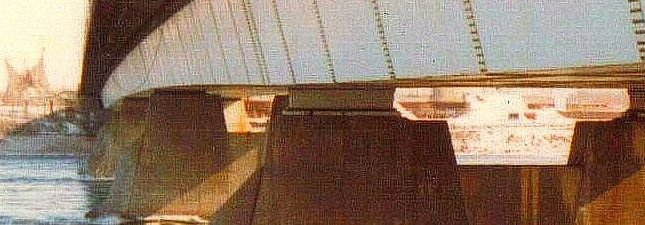Dear Prof. Lakoff
A short note to say how much I am enjoying "Where Mathematics Comes From". It is providing closure for me.
In the 1980's, I fell in love with math during a college course based on the very foundations-conscious Calculus text by Spivak and although I enjoyed the rigor and beauty, I could not help but feel a bit uneasy at the hoops one had to jump through for the proofs to work, all this in the name of eliminating intuition.
I eventually ended up on the "applied" side, to the regret of my wonderful teachers, because I felt much more at ease with the way things seemed to work out intuitively. Successive approximations to non-linear functions using the university mainframe seem to do the trick of finding solutions to things I was curious about. Infinitesimal approaches, simplex algorithms and Fourier series implemented in WATFOR to solve hard differential equations numerically were simple but magical approaches to understanding. I was gratefully standing on Turing and Church's shoulders.
Anyhow, over the years I kept looking for insights as to why the pure math left me a bit uneasy since I still admired the beauty of it, (like pining for a high-school sweetheart) in all kinds of places including David Foster Wallace's overly baroque book on the math of infinities (yikes).
Your book reconciled the comfort of the applied and the beauty of the formal for me. There is a cognitive continuum after all, between the purists and us engineering/computing folk.
It connected the dots, clarifying the things that seemed like bridges by grounding them. By focusing on the metaphors for infinity it helped in categorizing things that were both computing and theory, but that could only exist because of computing: compiler theory, the Aho-Ullman stuff derived from Chomsky. I can now see why there was all this cognitive dissonance when I was learning Analysis.
For example, the space-as-points versus space-containing-points argument you and Nunez make is beautiful and could be applied to the philosophy of physics as well. The notion of particle comes to mind. I think Feynman the intuitionist in physics is a counterpart to Poincare in the world of math. His explanations of energy quanta and fields address the analogous notions of space and points in the world of physics, where it seems some still cling to the Platonic reality of math. The intuitionists, like Poincare, were very courageous and insightful as well as demonstrably able to make new discoveries as they sidestepped the Gottingen school's rejection of intuitive geometry and Cantor's objectification of infinities. Set theory is nice but infinity is just NaN.
I had read Kline's history of math some years ago and although I agreed with his view that a rift in math was created at the time when intuition was relegated to a sideline, there seemed to be something missing, much more to say. Your work with Nunez closed that loop for me.
I am now curious and encouraged to find out more about any research to make rationals (the real Reals :-)) the basis for discretization, as well as links between foundations work and Chomsky's formal grammars. I agree as the book infers that terminology in math is key to disambiguation - but technical terms like Real and continuous are too deeply entrenched of course. Maybe intro calculus courses should begin with a review of those specialized semantics. Like lawyers learning contract terms...
I am also curious about reactions to your work from the math community (rather than by the pedagogical folks) since I think the arguments are revolutionary and deeply original. I looked cursorily on the Web but found little of substance in reaction or support of the ideas in the book. Are mathematicians looking into closing the gaps you identify? Did you get much substantive opposition to your views? Finally, kudos for the other wonderful work on political discourse. Sorely needed. I wish I could be young enough again to enroll as a student of your faculty, but I will continue to follow your research with great interest nonetheless.


No comments:
Post a Comment